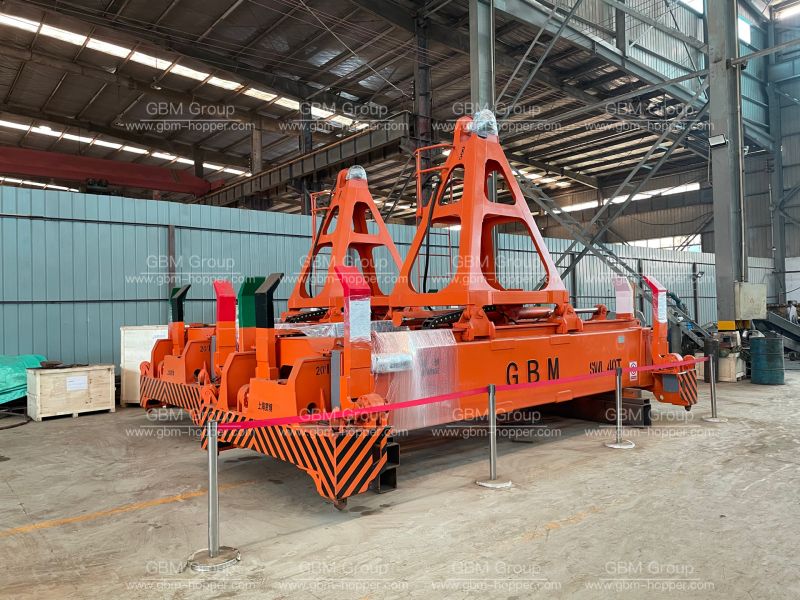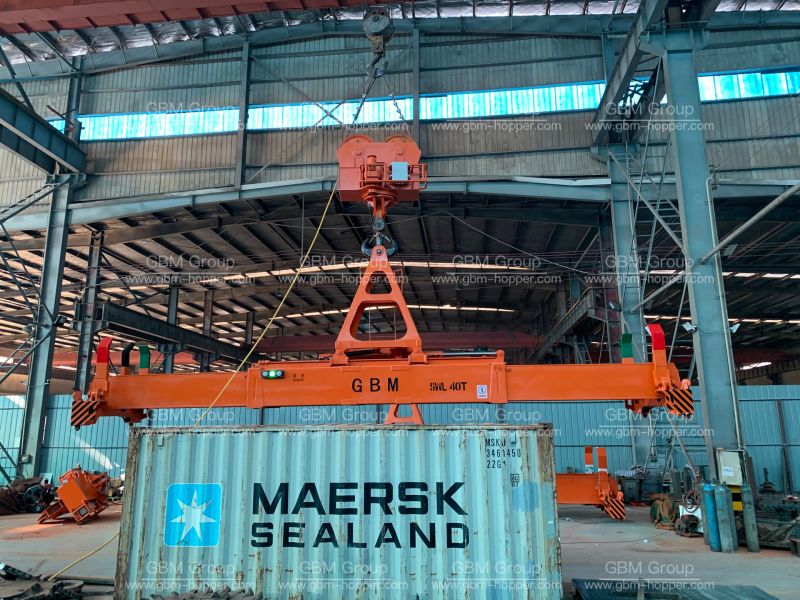Hydraulic telescopic spreader is the necessary equipment for loading and unloading containers in ports and terminals. Spreaders are used to lift containers safely and efficiently. Over the years, these spreaders have been developed to be more advanced, incorporating advanced hydraulic and mechanical systems. With this evolution, quality assurance has become a top priority, with manufacturers regularly testing their hydraulic telescopic spreaders at the factory to ensure they meet international safety standards.
Tests are performed at the factory to ensure that the telescoping spreader is functioning properly and free from defects or malfunctions. Tests are performed on individual spreaders before they are packaged for shipment. It involves multiple inspections of different components of the spreader. For example, leak, pressure and flow tests on hydraulic systems. Mechanical components are tested for tolerance, alignment and strength. All components that make up the spreader are inspected for defects and any problems are addressed before packaging.
In addition to function tests, manufacturers also carry out load tests on telescopic spreaders. These tests involve lifting heavy objects to test the strength and stability of the spreader. Testing is critical as any failure can result in accidents and loss of life or property. To prevent any accidents, the spreader is tested to its maximum working capacity. During testing, the spreader is loaded to the maximum weight it can lift and then held for a specified time to check for any signs of deformation or damage.
All tests performed on hydraulic telescoping spreaders are governed by international safety standards such as ISO9001. These standards provide guidelines for manufacturers to perform tests to ensure quality, safe and reliable spreaders. Failure to meet these standards may result in discontinuation of production or even legal action.
The need for factory testing of hydraulic telescoping spreaders cannot be overemphasized. These tests ensure that any defects or failures are identified and addressed before the equipment is shipped to the customer. This is especially important as any failure of the spreader can lead to accidents, downtime and lost revenue. Manufacturers also lose credibility and reputation if their equipment continues to fail or fail.
Factory test of the hydraulic telescopic spreader is a key step to ensure that the equipment is safe and reliable and complies with international safety standards. These tests are comprehensive and cover all aspects of the spreader, including hydraulic and mechanical components. Manufacturers who adhere to these standards will have a solid reputation for delivering safe and reliable hydraulic telescopic spreaders. Customers also benefit from the knowledge that the equipment they receive has been thoroughly tested and is safe to use. At the end of the day, the purpose of testing a hydraulic telescoping spreader at the factory is to ensure that the equipment is functioning and operating safely.
Post time: Jun-13-2023


 © Copyright - 2018-2021 : All Rights Reserved.
© Copyright - 2018-2021 : All Rights Reserved.